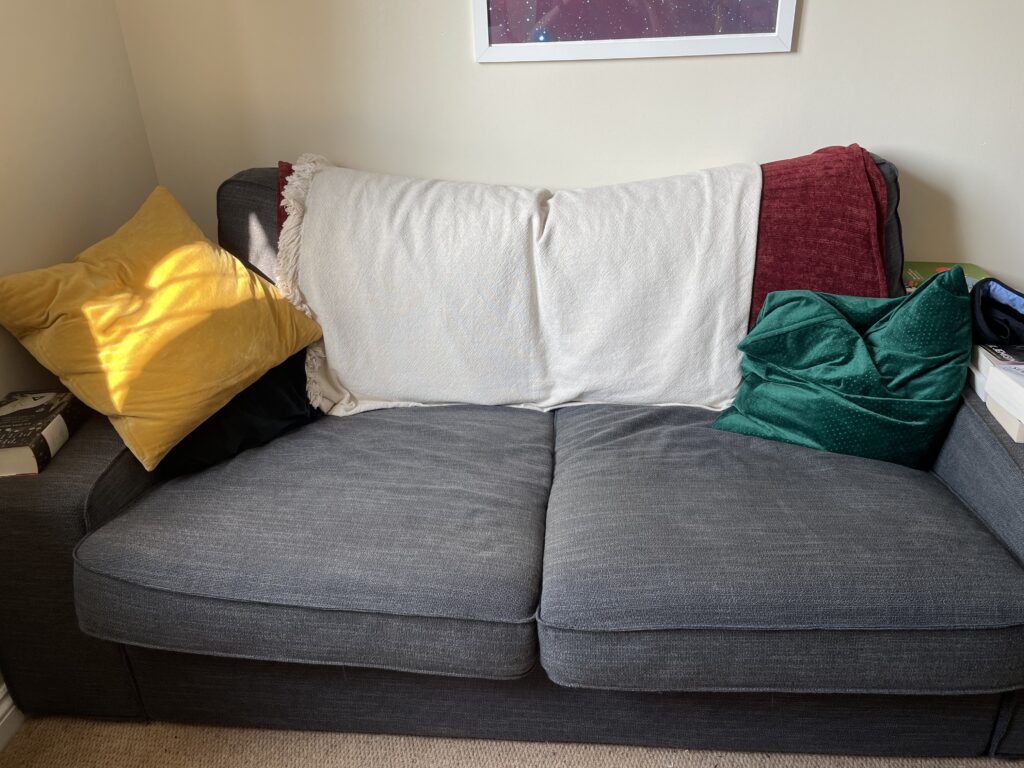The speed-reading bookworm cliché
I read at a snail’s pace for someone who likes books so much. The stereotype of a bookworm is somebody who drops a book from standing height and reads the entire thing before it hits the ground, letting the wind flutter the pages at lightning speed.
A. is like that. She can comfortably read a book a day, even beefy fantasies. She says she just lets it wash over her, and the experience is a lot like watching TV.
That works great for her. She gets exactly what she wants from the experience.
My experience of reading isn’t like that at all.
For me, reading is a visceral experience, more of a jumping-off point for thinking than an act of consuming something. If a dramatic scene is playing out on the page, I can’t just read lines of dialogue faster than they would be spoken in real time… surely the voice inside my head would also speed up, become high pitched?
Anyone who knows how to speed read would likely say that’s nonsense, because you shouldn’t be reading with an internal voice. Speed reading is about technique and practice, and discipline. I had to do it all the time for my academic work. It’s about using peripheral vision, intuitively filling in words to complete a sentence, using a ruler or finger to track your progress and not going back.
I ask: where the hell is the fun in that?
I could read faster, but what would be the benefit? We’re supposed to be reading for pleasure, here.
If you’re ignoring nuance, structure and pacing, you’re missing out on most of the craftsmanship that’s gone into the book. My favourite part of reading is getting to the end of a brilliant paragraph and going: “You bastard! How did you do that?” And I’ll go back and read it again.
I’ve also wondered at points whether I have some form of attention disorder. I struggle to just sit and read, line by line, page by page. I spend as much time pausing, staring off into space, running over the scene in my head, as I do actually reading.

I also struggle to read less than two or three books at once. I scribble notes, jump off the sofa to write in my journal about something, or I take photos of the page for later reference.
There’s something about this meandering progress that’s essential for me. It’s what makes it fun.
Austin Kleon said this, repeated recently by Jason Gurley:
Writers are unique kinds of readers because, for them, reading is rarely an end in itself, but a means of generating more writing.
There’s definitely something to that. If a particular story element or turn of phrase is particularly elegant or awful, I take notice. But in general, I’m not sure this is explains all of why I’m so slow. I probably just have an overactive imagination and bad habits of busyness.
Being slow does have its drawbacks. I don’t sample as many voices in a given stretch of time, and I can scope out less of what’s current. I recently took a tour around some writers’ website, looked over their logs of what they’ve been reading (see mine here). Most of them read a lot more than I do. The obvious feelings of inadequacy followed.
No matter that the average person (at least, the average American) reads just 12 books a year. Surely I should be matching these other writers.
Then I had a shower and got over myself.
A lot of the people I was comparing myself to were full-time writers, without a traditional day job. About half of them were lecturers in English or creative writing — so their day job was partly to read books.
No wonder I can’t quite keep with them, given I’ve had a couple of things on my plate (cough PhD thesis). I’m content knowing that I fully explore whatever I do read.
Sometimes it takes me fifteen minutes to read a single page. And for me, that’s the ideal.